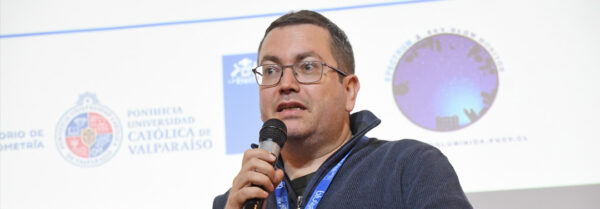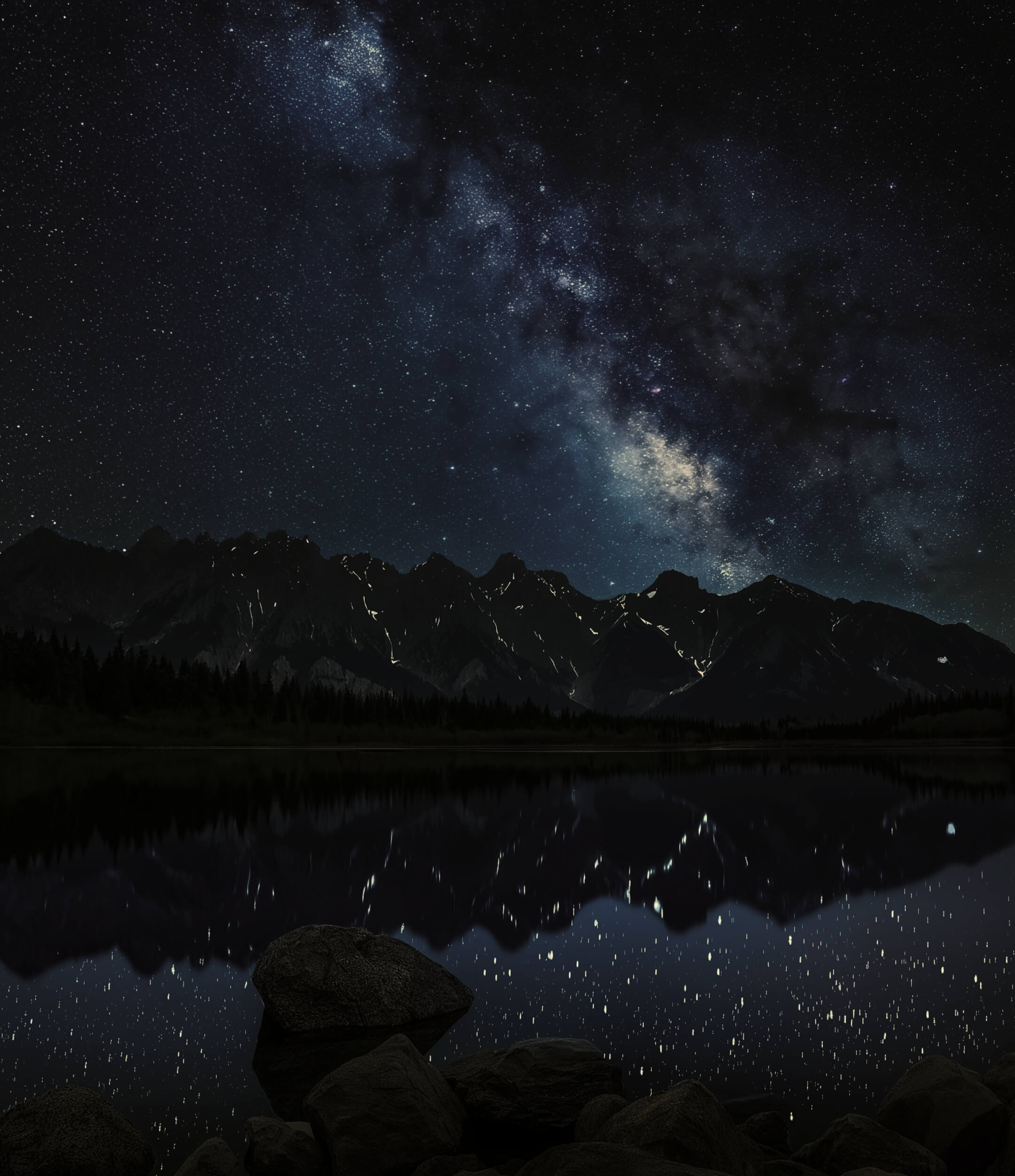The renowned Spanish academic and specialist in light pollution spoke with Fundación Cielos de Chile about the main challenges when measuring the impact of artificial light on dark skies.
Alejandro Sánchez is an astrophysicist from the Complutense University of Madrid and recently visited Chile to present at the Light Pollution Measurement Seminar in Chile 2024, organized by the Pontifical Catholic University of Valparaíso. In conversation with Fundación Cielos de Chile, the author of multiple publications on modeling and measuring the brightness of the night sky addressed the main challenges when calculating the impact of artificial light.
According to the specialist, technology is currently not a limitation, as there are tools available to everyone today that allow for these records. “The first thing we have to do is agree among scientists on what we want to measure, we have no technological limitations, really a mobile phone or a reflex camera can measure light very well. We have to agree on how, what, when, where we are going to measure and that is one of the essential problems,” he stated.
In the researcher’s opinion, Chile has made progress in public policies in line with scientific evidence, however, he warned that political and scientific institutions tend to be more interested in the problem of light pollution than civil society and individuals, so it is necessary to educate the public on the importance of this issue for these policies to be successful.
Light pollution according to Alejandro Sánchez
To understand the challenges in the field of light pollution in Chile, especially regarding the implementation of the New Lighting Standard in October of this year, it is first necessary to understand what light pollution is and its impact on people, biodiversity, and the quality of skies for astronomical observation.
“In practice, it is assumed that any introduction of artificial light into the nighttime environment is light pollution. The thing is, this is an academic definition, but practically, since we are not going to stop illuminating, other definitions are used that are more focused on reducing light that is not useful. But really all light pollutes,” illustrated Alejandro Sánchez.
Regarding the latter, the astrophysicist emphasizes that natural conditions for humans do not include the presence of artificial light, so the use of it will evidently have an impact. Moreover, the more presence of the blue color a light source has, the greater the impact will be.
“It’s not that blue light is not in nature, it’s just that it doesn’t have such an intense component. We are not used to the high levels of intensity we are currently experiencing, and neither is nature. For example, the full moon only lasts three days, and if the illumination level of the full moon has dramatic effects on animal cycles, the light we introduce, which is much more powerful, will of course have a much greater impact,” he described.
However, given the growing feeling of insecurity among the population, the demand is for safer spaces, which tend to be confused –according to the academic– with over-illuminated spaces. In response to this, he argues that: “We have to realize what level of lighting is really necessary to feel safe. There is never a case of a streetlight stopping a crime or a criminal, although we have much evidence of how lighting often favors crime, even if it is counterintuitive.”
Alejandro Sánchez’s proposal to generate greater awareness among the population is to start experiencing darkness. “Children’s fear of the dark is an instinct because humans are diurnal beings and we have a certain nocturnal vulnerability. All horror movies are at night because we have that instinct and film directors know it,” he explained.
But also, from academia, he believes it is important to promote citizen science projects that connect people with this problem. On this, he notes that: “if we want to see a problem like light pollution or verify any other social issue, what better than our accomplices being the very citizens we want to raise awareness about the importance of this pollution. What better antidote against conspiracies than for citizens themselves to participate and see the step-by-step of an investigation,” he concluded.



